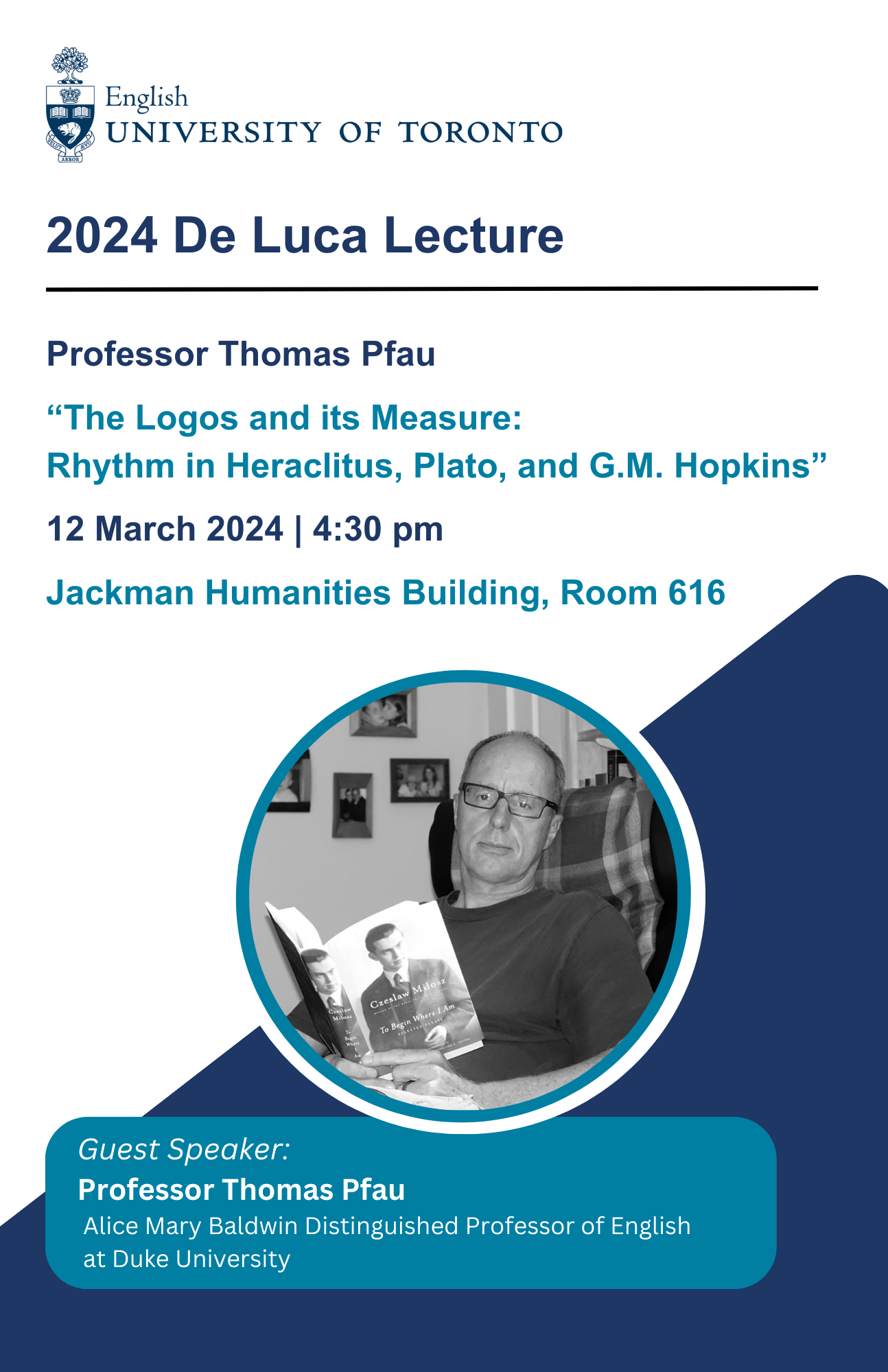Vincent A. De Luca Lecture | Professor Thomas Pfau
When and Where
Speakers
Description
The Department of English is pleased to invite you to attend the Vincent A. De Luca Lecture in Nineteenth-Century Studies titled, "“The logos and its Measure: Rhythm in Heraclitus, Plato, and G. M. Hopkins” " with special guest lecturer Professor Thomas Pfau.

Abstract:
“The logos and its Measure: Rhythm in Heraclitus, Plato, and G. M. Hopkins”
Précis: My lecture will take up the concept of “rhythm” and try to show a deep-structural link between its formal-poetic and its metaphysical dimensions. To that end, I’ll begin with some remarks about how Heraclitus and Plato conceive of rhythm (rhythmos) as the indispensable yet intrinsically variable “measure” (metron) of all intelligible speech (logos). From here I will move on to my main thesis: namely, that in the aftermath of neo-classical (Augustan) poetics and aesthetics, and their insistence on regular meter, formal symmetries, and “quadratic form” (C. Dahlhaus), there occurs a major shift in poetry (and in music) starting around 1800. Thus, following the experiments with non-accentual verse by the early Coleridge, we can observe in Hölderlin’s late hymns (1802-1803), the great lyrics of G. M. Hopkins, and Paul Claudel’s Cinq grandes odes (1910) a concerted attempt to reintroduce a classical-metaphysical concept of rhythm into poetic speech. The second part of my lecture will explore this development in G. M. Hopkins’s theory of “sprung rhythm” and its application in “The Wreck of the Deutschland” (1875). Uniquely, Hopkins’s ode stages its central antinomy – between an Ignatian theology of suffering and a Dionysian theology of beauty – as an objective and immutable systolic / diastolic rhythm that, as in ancient Greek thought, pervades both the sensory and intelligible dimensions of the poetic word.


